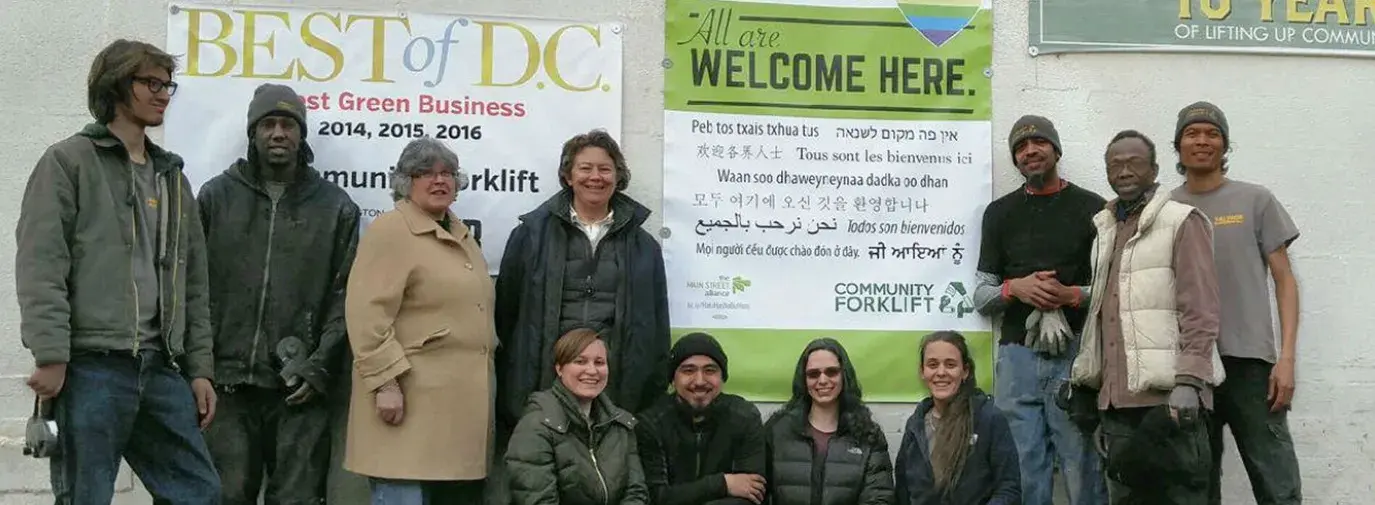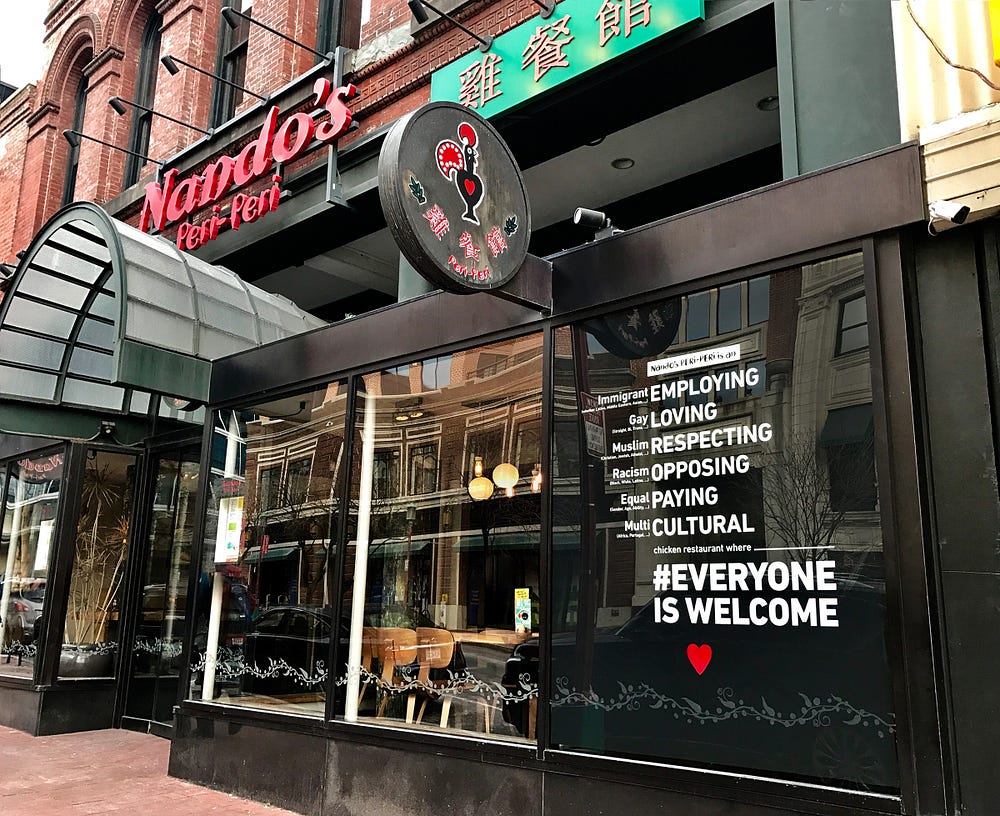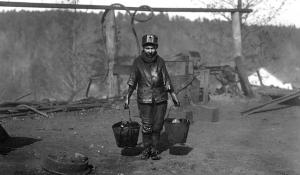
On January 28th, the New York Taxi Workers Alliance declared a one-hour strike: From six to seven p.m., they would not pick up or drop off passengers at JFK Airport, to protest a Trump executive order banning refugees, as well as travelers from seven predominantly Muslim countries, from entering the US.
“We stand in solidarity with all of our peace-loving neighbors against this inhumane, cruel, and unconstitutional pure act of bigotry,” the union declared in a statement.
Uber, the popular ride-sharing service, crossed the virtual picket line, drawing fire from angry users. Though the company disabled “surge” pricing, or a rise in rates during busy periods, for that hour, critics still perceived that Uber was profiting from the strike. The hashtag #DeleteUber started trending like wildfire. Further exacerbating Uber’s poor optics was the fact that CEO Travis Kalanick was a member of Trump’s economic advisory group.
Meanwhile, Lyft, Uber’s chief competitor, swooped in to pick up the pieces—in the form of disgruntled former Uber users. Lyft executives remain mum on whether or not their drivers picked up passengers from JFK or not during the taxi strike, and though its executives may not regularly break bread with the president, Trump advisor Carl Icahn did make a $100 million investment in Lyft in 2015, according to Fortune. But when Lyft quickly released a statement condemning the Muslim and refugee ban and promised a $1 million donation to the American Civil Liberties Union (ACLU) as #DeleteUber swept across the nation, ride-sharers across the country swooned. For the first time in its history, the number of customers downloading the Lyft app beat Uber the day after the strike.
With all of this consumer pressure bearing down on him, Kalanick quickly buckled. Just a day later, he publicly condemned the “wrong and unjust immigration ban” and pledged a $3 million fund for Uber drivers affected by the ban. By February 2nd, Kalanick had quit Trump’s advisory council.
“The Uber-Lyft incident illustrates just how much power individuals have when we band together to demand corporate accountability,” says Todd Larsen, Green America’s executive co-director. “We can demand that companies stand up to hate, and they have to listen, because we’re their customers.”
Whether driven by their CEO’s moral compass or an eye for their bottom lines, corporations are standing up for immigrants, Muslims, and other targeted populations. Green businesses are also leading the way, without any prompting from outraged customers.
Standing Up To The White House
Lyft isn’t the only representative from Corporate America speaking out against Trump’s Muslim and refugee ban. In the aftermath of the ban, Airbnb CEO Brian Chesky released a statement on Twitter, stressing that “not allowing countries [sic] or refugees into America is not right.” The company pledged to match donations up to $100,000 to the National Immigration Law Center, the International Refugee Assistance Project, and the International Rescue Committee (IRC). Furthermore, it offered free housing to refugees and others who were left stranded by the travel bans, asking Airbnb hosts to volunteer their home or apartment and subsidizing other host facilities.
Facebook CEO Mark Zuckerberg publicly shared the story of his wife Priscilla’s parents, who were refugees from China and Vietnam. “Had we turned away refugees a few decades ago, Priscilla’s family wouldn’t be here today,” he wrote.
Google created a $4 million crisis fund to support four immigrant rights organizations, the ACLU, the Immigrant Legal Resource Center, the IRC, and the UN Refugee Agency. Starbucks pledged to hire 10,000 refugees in 75 countries over the next five years. Instacart donated $100,000 to the ACLU and announced the creation of office hours with immigration attorneys for employees. LinkedIn pledged to expand its existing Welcome Talent program, in partnership with the IRC, “to help newly settled refugees more quickly find jobs that leverage the skills they are bringing into the US economy.”
Even the billionaire Koch brothers, who have provided millions in campaign funds for many Republican politicians and for vice-president Mike Pence, announced that they would fight Trump’s refugee and Muslim ban.
Late in February, 97 companies, including Apple, Microsoft, Facebook, Levi Strauss, and others, filed an amicus brief to the Ninth Circuit Court stressing the importance of immigrants to the economy and society.
“Immigrants or their children founded more than 200 of the companies on the Fortune 500 list, including Apple, Kraft, Ford, General Electric, AT&T, Google, McDonald’s, Boeing, and Disney,” the brief read. “... Long-term, this instability [caused by the executive order] will make it far more difficult and expensive for US companies to hire the world’s best talent—and impede them from competing in the global marketplace.”
Inclusive Before Inclusive Was Cool
Green businesses have a long history of taking risks in the name of doing what’s right. Many were standing up for marginalized communities and saying no to hate long before the Uber- Lyft drama took place. And, unlike the corporations mentioned above, they take great care to ensure sustainability throughout their supply chains and across their entire business models, so you can feel good all around about being their customer.
Troubled by the rise in hate crimes, particularly against the US Muslim and Arab communities, the Main Street Alliance launched its Hate Has No Business Here campaign in 2015. The Alliance is an organization of independent companies advocating for public policies that promote vibrant small businesses, healthy communities, and social responsibility.
 The Main Street Alliance is urging businesses nationwide to print out and display its anti-hate posters in their offices and shop-fronts. Community Forklift turned theirs into a huge banner, seen here hanging in front of their Maryland warehouse store with several employees. Photo courtesy of Community Forklift.
The Main Street Alliance is urging businesses nationwide to print out and display its anti-hate posters in their offices and shop-fronts. Community Forklift turned theirs into a huge banner, seen here hanging in front of their Maryland warehouse store with several employees. Photo courtesy of Community Forklift.
The Alliance created a “Hate Has No Business Here” poster and put a high-resolution PDF on its website for businesses to download for free and post in their stores and offices. The poster, pictured on p. 16, makes a point to emphasize that Black lives matter and to welcome women, the LGBTQ community, immigrants, refugees, and people of all faiths.
After Trump signed his Muslim and refugee bans, the Alliance’s national director, Amanda Ballantyne, came out swinging: “Today’s executive orders will not make America safer, stronger, or more prosperous. ... Research and experience show that the vast majority of refugees are working and paying taxes within a few short months. Refugees start businesses, create jobs, buy homes and cars, and renew neighborhoods. That means a stronger, more inclusive and thriving Main Street. ... Together, [our members] celebrate diversity, create safe spaces, and send a clear message of inclusion and opposition to this xenophobic policy.”
The Alliance also launched a petition in late January against Trump’s executive actions. The petition had received 1,400 signatures as of mid-April.
In a similar action, Green America’s Green Business Network® (GBN) and the American Sustainable Business (ASBC) Council are working with our green business members to sign on to a letter against the executive orders.
“As American business leaders and employers, we stand in opposition to the recent executive order on immigration,” the letter reads. “We believe the climate of fear and uncertainty that it fosters in our customers, our employees, and our communities will be damaging to business. The ban undermines the interconnections and workforce mobility upon which we depend. The Executive Order also runs counter to basic constitutional due process, which is essential to a well-functioning economy.”
Less than a week after the letter was launched, more than 300 businesses had signed on.
Power In Compassion
Individual businesses are also taking steps to address hate. Community Forklift(m*), a building-materials reuse warehouse in Edmonston, MD, put up the Main Street Alliance’s poster back in December 2015—and took things a step farther.
“It fit our ethos, and our staff loved it, so we put the sign on our door right away,” says Ruthie Mundell, Community Forklift’s director of outreach and education.
“One year later, and hate crimes are on the rise—the polarization has only gotten worse. In response, we decided to turn the little sign into a HUGE banner and now, no one can miss it! When you come to the warehouse, you’ll know that we aim to treat everyone with respect and expect others to do the same.”
The sign meant so much to the Community Forklift team, in part, because the warehouse boasts a culturally diverse clientele and staff, which Mundell stresses is “not just a feel-good thing.” “It gives us an advantage,” she says. “It has helped us survive serious challenges and economic downturns, take advantage of opportunities, and grow to a 40-person operation. Because it is so important to our success, every new employee learns that it is part of their job to create a welcoming environment at Community Forklift. This is a very strong part of the Community Forklift ethos: we lift and build people and communities.”

South-African-owned restaurant chain Nando’s PERi-PERi celebrated inauguration week by displaying its own inclusivity signs in its DC restaurants.
The signs read: “Nando’s PERi- PERi is an Immigrant Employing, Gay Loving, Muslim Respecting, Racism Opposing, Equal Paying, Multi Cultural chicken restaurant where #Everyone Is Welcome.”
Nando’s distributed 60,000 free posters in Washington, DC, and it printed the poster in the free Express newspapers distributed at Metro stations across DC. Individuals can also download the poster at everyoneiswelcome.us. The company donated half of its DC proceeds from inauguration weekend to its “long-standing partner” DC Central Kitchen, which addresses hunger in the District of Columbia.
“Even if you’ve never sat at one of our tables, you’re welcome to stand with us,” said Burton Heiss, CEO of Nando’s PERi- PERi, in a statement. “This is a statement of who we are, and the values that our company and employees hold dear.”
Wildlife photographer Steve Kaye, owner of Steve Kaye Photom in Placentia, CA, doesn’t have a sign in front of his business. In fact, he barely has a sign at all, since he largely works outdoors. But what he does have is a statement on his website supporting the Charter for Compassion.
The Charter, the flagship document of the nonprofit Charter for Compassion International, affirms the need “to make compassion a clear, luminous, and dynamic force in our polarized world. Rooted in a principled determination to transcend selfishness, compassion can break down political, dogmatic, ideological and religious boundaries. ... It is the path to enlightenment, and indispensable to the creation of a just economy and a peaceful global community.”
“There’s a concept here [with the Charter] that I really like, and that’s the concept of cooperative partnerships,” says Kaye. “We’re working in harmony toward something in common. We need more of this type of activity, because through combined efforts, we become stronger.”
Last July, Steve Kaye Photo officially became a partner of the Charter. Partners pledge to “bring an awareness of compassion and compassionate action to everything we do.”
“If someone can scare you with lies and make you hate, they own you,” says Kaye. “If the whole progressive, green community tries to make a run as individuals, we’ll be decimated, because individuals are easy to pick off. If everyone shows up en masse as a unified effort, then it’s overwhelming. There needs to be a unified effort of kindness.”
m* denotes Certified Green Business Member







